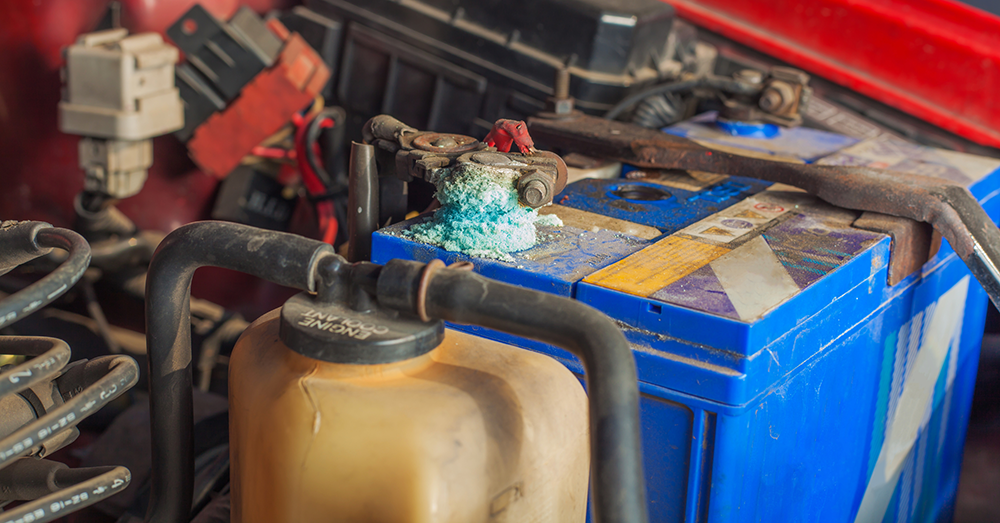The Telltale Sign Your Battery’s In Trouble

The battery in your vehicle stores a corrosive concoction of chemicals which produce electricity for the engine and all those passenger smartphones.
What happens when fluid inside the plastic container escapes?
Most noticeably, a crusty corrosion forms around the battery terminals. That corrosion impedes your vehicle’s electrical system functions.
In severe cases, corrosion can destroy your battery entirely.
“An accumulation of corrosion can create serious problems,” said Tony Molla of the Automotive Service Association, a Texas-based nonprofit dedicated to vehicle maintenance. “Substantial amounts of corrosion ultimately act as an insulator, preventing the battery from delivering or accepting a charge.”
Risk of corrosion is highest during the summer as temperatures cause batteries to overheat quickly.
Basic automobile batteries have remained unchanged for decades. They contain lead and plastic components along with an electrolyte solution of sulfuric acid and water. The solution interacts with the lead to generate power when you turn the key.
What causes corrosion?
Corrosion occurs when hydrogen gas emanating from battery acid mixes with the already sweltering atmosphere under the hood.
If the corrosion is around the positive terminal, your system is overcharging. Corrosion on the negative terminal means the system is undercharging.
Cables should have no fraying and must be secured firmly to the battery. Also look for cable corrosion, which reduces power from flowing from the battery.
- Inspect the battery for leaks, cracks or bulging. Any one of these symptoms means it’s new battery time.
- A cracked, leaking or swollen battery poses serious safety hazards for you and your vehicle.
- Check for corrosion around the cables. Rust and crust on the terminals can diminish the effectiveness of your vehicle’s battery and must be removed.
- Inspect your vehicle’s charging system every three months or every oil change. Batteries that are more than three years old should be tested more frequently.
- Always get the battery checked before taking a long road trip. Have a professional mechanic inspect battery cables, posts and fasteners.
Copyright © 2018 by Sensible Driver. All rights reserved.